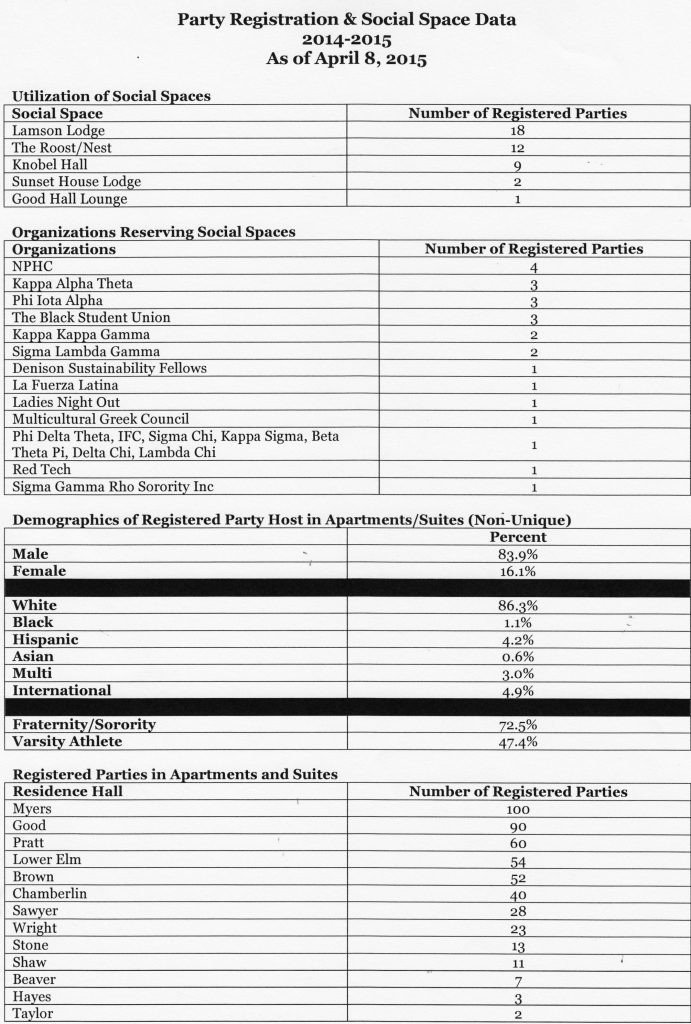By Rachel Mabie
Staff Writer
 It is 9:00 p.m. on Friday, April 17 in the Sunset House common room. Music is blasting through speakers provided by Red Tech; the bartender stands in the other corner of the room, patiently waiting for students to carry in their six-packs of beer and wine coolers. On the opposite facing bench are the two peer monitors of the social space, awaiting the party-goers of Denison University to trickle through the doors and begin socializing.
It is 9:00 p.m. on Friday, April 17 in the Sunset House common room. Music is blasting through speakers provided by Red Tech; the bartender stands in the other corner of the room, patiently waiting for students to carry in their six-packs of beer and wine coolers. On the opposite facing bench are the two peer monitors of the social space, awaiting the party-goers of Denison University to trickle through the doors and begin socializing.
Yet the students never came.
Teague Magner ’16 (member of Delta Chi), PJ Fallon ’16 (member of Kappa Sigma), Kristian Garcia ’16 (unaffiliated) and Rachel Mabie ’16 (member of Pi Beta Phi) decided that for their Communication 350 Language, Culture and Communication class, they would critique Denison’s drinking culture, where predominantly male, Greek affiliated men throw parties in their living quarters: the senior apartments.
“We are trying to disrupt an exclusive party scene and get people to socialize with different people in a neutral space,” Magner said.
Posters were hung around Slayter last week, and a public event was created on Facebook that showed over 70 people were planning on attending the Sunset House party. However, the only individuals to attend the party were the party hosts, the bartender and the student peer monitors.
“The party culture is so singularized and it’s very hard to break up,” said Laurel Kennedy, the vice president for Student Development. Just across the sidewalk of Sunset House were the “Sunnies” senior apartments, where parties were happening with dozens of people already in attendance, proving Kennedy’s comment to be true.
1995 was the year that Denison decided to make fraternities on campus un-residential. Yet despite the fact that fraternity men were living in different spaces, the Denison party culture did not change. It simply moved to a different space.
The Communication 350 culture jam experiment attempted to challenge the naturalized party culture at Denison by making the event open to all members of Denison’s campus, moving the space out of the fraternity-dominated apartments, and having a female host the event.
“The fact that no one showed up to our very well-advertised party is very telling of how our culture is unwilling to change,” Fallon said.
Less than 25 percent of Denison’s student body exists in the party-throwing demographic as male and Greek affiliated, yet this is the culture that dominates. Since the fall of 2014, social spaces have been incentivized by administration who attempt to break down the traditional, cultural walls by allowing kegs and peer monitors rather than adult monitors in these social spaces.
While the culture jam was an accurate indication of our culture, it is a slow and steady process. “As classes continue to graduate, I think that the opportunity for students to register these social spaces will allow for heightened intermixing in years to come,” Magner said.
Chart Courtesy of Laurel Kennedy
